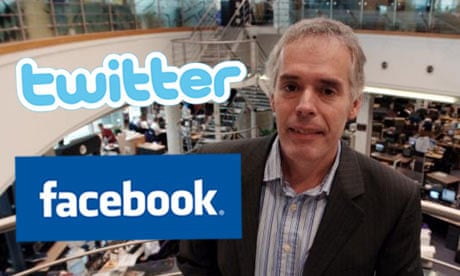BBC news journalists have been told to use social media as a primary source of information by Peter Horrocks, the new director of BBC Global News who took over last week. He said it was important for editorial staff to make better use of social media and become more collaborative in producing stories.
"This isn't just a kind of fad from someone who's an enthusiast of technology. I'm afraid you're not doing your job if you can't do those things. It's not discretionary", he is quoted as saying in the BBC in-house weekly Ariel.
Horrocks said that technology was changing journalism, adding that it was important for the BBC to leave a programme-based mindset behind and adapt to new technologies.
Internationally, news organisations already have professionalised their approach towards user content and social media. For CNN the deep integration of social media marked an important step in improving their reporting and get closer to their sources – as seen recently with the coverage of the Haiti earthquake.
For BBC news editors, Twitter and RSS readers are to become essential tools, says Horrocks. Aggregating and curating content with attribution should become part of a BBC journalist's assignment; and BBC's journalists have to integrate and listen to feedback for a better understanding of how the audience is relating to the BBC brand.
Following the creation of a social media editor post in October, this marks another fundamental change in the Beep's attitude towards social media.
Until now the broadcaster has been very cautious about social media. In the 160 pages of the BBC's 2009 editorial guidelines, social media are mentioned only once: the editors are warned to "consider the impact of our re-use" of social media content. Although placed in the public domain already it will bring it to a wider audience, and there might be some copyright issues, the guidlines say.
Horrocks's words mark a move in the opposite direction. As technology is changing the nature of journalism, the BBC is trying to keeping up with the pace. Horrocks, formerly head of the BBC's multimedia newsroom, finds clear words for it: "If you don't like it, if you think that level of change or that different way of working isn't right for me, then go and do something else, because it's going to happen. You're not going to be able to stop it."

Comments (…)
Sign in or create your Guardian account to join the discussion